Medication-Assisted Treatment (MAT)
Medication-assisted treatment (MAT) is a proven approach at Harmony Ridge to support individuals in their journey toward recovery from substance use disorders.
Substance use disorder or addiction to substances is considered a mental disorder. However, mental disorders often have physical symptoms as well. Addiction is no exception to this rule. In fact, the physical symptoms are more pronounced in SUD than in most mental disorders because both using drugs and alcohol and detoxing from them have an undeniable effect on your body. Sometimes, that effect is so severe that it makes detoxing dangerous. This doesn’t, however, make sobriety unattainable; it only means you need medication assisted treatment in West Virginia. At Harmony Ridge Recovery Center you will find top-notch medical professionals who can provide this type of care. Do not let fear of detoxing stop you – contact us instead and we will help you on your way to sobriety!
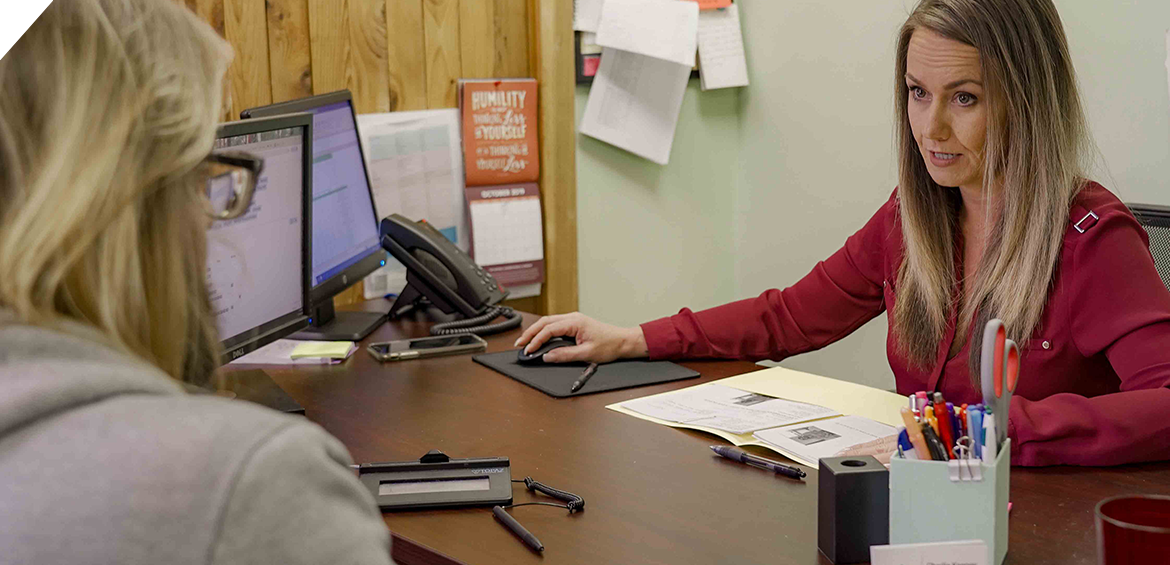
How Does Medication Assisted Treatment (MAT) Work?
Prolonged use of substances alters your brain chemistry. In the beginning, whenever you use your drug of choice, you experience euphoric feelings – a high. After consistent use, your brain is incapable of sustaining such intense feelings over time. In order to combat the intensity of the high, your brain starts producing less dopamine, the hormone that facilitates feelings of joy. Consequently, the euphoric feelings get weaker and you need greater and greater amounts of the same substance to experience them. This is how addiction develops.
The longer you are addicted to a given substance, the less dopamine your brain produces. Eventually, using drugs becomes the only way for you to feel anything positive at all. Even after you stop using drugs and detox from them, it takes some time for your brain to get back to its baseline dopamine production and for your body to recover. This is something that medications can help with. Medication assisted treatment uses FDA-approved drugs to normalize brain chemistry. As a result, substance-induced euphoria is eliminated, cravings are diminished, and symptoms of detox relieved.
Ultimately, the goal of medication assisted treatment is full recovery. However, it is important to note that medication alone is not enough for you to get or stay sober. Instead, a combination of MAT and therapy is the best way to holistically approach addiction treatment.
Contact Us TodayWho is a Candidate For Medication Assisted Treatment West Virginia?
Like any other medical treatment, MAT is not for everyone. The prescribed medications can have side effects, many of which are similar to the side effects of the substances being treated. Depending on the severity of your addiction, the substance you are addicted to, how long you’ve been using it, and individual health factors, the risks may in some cases outweigh the benefits. This is why MAT is typically prescribed for:
- addiction to alcohol and opioids
- prolonged and severe cases of addiction
- chronic relapse after abstinence-only treatment
- people who find detox too physically taxing
- people for whom detox can be dangerous due to medical conditions
- potential overdose risk
When you start your treatment at Harmony Ridge, you will be evaluated by medical professionals; they will decide whether medication assisted treatment is the best option in your case.
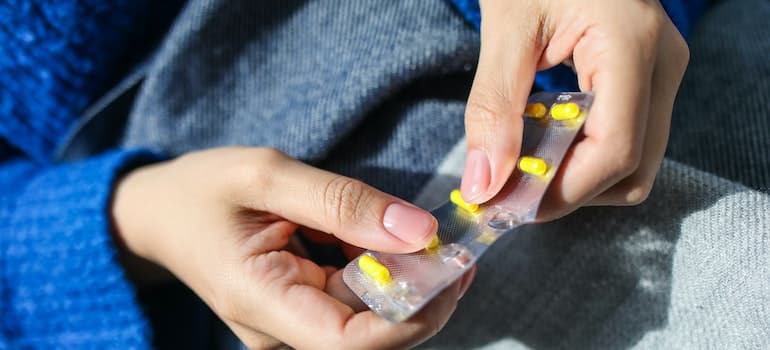
Contact Harmony Ridge Today!
The first step toward achieving recovery is to reach out to one of the rehabs in WV that can get you on the track to recovery. Our admissions team is available 24 hours a day, 7 days a week, 365 days a year. Give us a call today!
Contact Us TodayNaltrexone Use
Naltrexone helps patients cope with the effects of opioid withdrawal. Used in a pill or injection form, it blocks out the euphoric high that comes along with the type of drugs the patient has been abusing. The naltrexone also cuts down the urge to use that many recovering addicts face during treatment.
Like any other medication, it comes with some possible side effects, which can include:
- Headaches
- Muscle weakness
- Vomiting
- Trouble sleeping
Because it can cause liver damage with excess use, it will be closely administered by our medical professionals.
Contact Us Today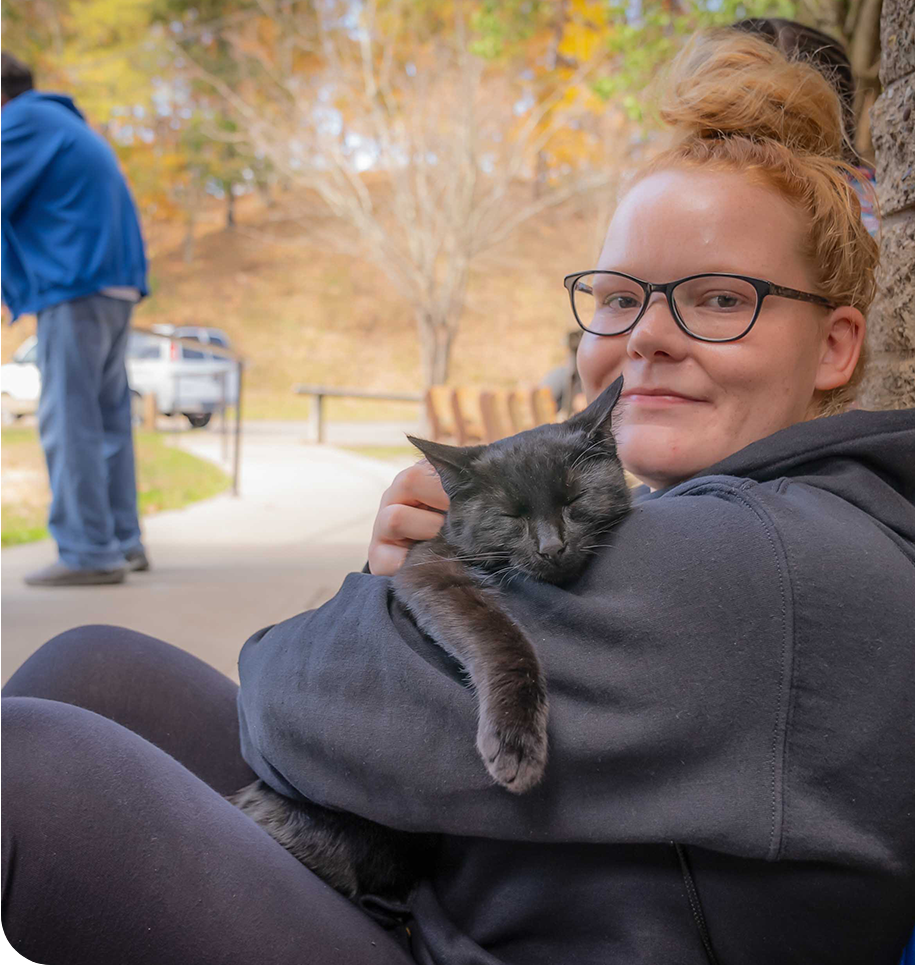
Buprenorphine Use
Buprenorphine is the first medication medical staff uses to treat opioid addiction, and it can be prescribed by any doctor’s office. Other medications can only be given out by certified clinics like ours. Buprenorphine is usually available in pill form, and it alleviates the side effects of opioid withdrawal. Buprenorphine also decreases cravings that come along with the drug abuse treatment process.
Although it has the potential to be abused itself, it is sometimes mixed with naltrexone to decrease this potential. It has uncomfortable side effects that can come along with use that can include:
- Fever
- Constipation
- Trouble staying awake
- Vomiting
- Irritability
An Ethical Medication-Assisted Treatment Program
To maintain an ethical medication-assisted treatment program, our staff will evaluate each patient accordingly. We’ll only use this treatment if completely necessary for our patient’s health and well-being, especially if they aren’t responding well to only having abstinent-based treatments.
We understand there are risks that come along with using a medication-assisted treatment in rehab. Most of the medications we use have a potential for addiction, so our staff is well-versed in how to administer these. We don’t allow our patients to have access to large dosages to these medications while under our care.
Contact Us TodayMedication- Assisted Treatment Protocol
We will have to determine three things to properly assess each patient: what type of substance is being abused, the severity of the addiction, and the possible presence of co-occurring mental health disorders. Once our staff has evaluated all of these factors, our staff will determine whether the patient will need MAT. If you need MAT to recover completely, we will place you into a special unit that has a higher level of care.
There is no minimum or maximum amount of time this type of treatment may take. Each case will differ, and the need for MAT will be routinely monitored to make sure it is continuing to help the patient instead of hurt them.
You may be an ideal candidate for medication-assisted treatment if you have:
- Been diagnosed with an opioid addiction
- No physical issues that could be affected by the medication
- Educated yourself on all treatment possibilities
- Agreed to follow strict instructions that come with MAT
You may not be an ideal candidate if you have:
- Low motivation to attain sobriety
- More than one substance addiction at the same time
- A history of misuse and abuse of medication
- Difficulties with health conditions like heart disease and liver failure
Who is a Candidate For Medication Assisted Treatment West Virginia?
Like any other medical treatment, MAT is not for everyone. The prescribed medications can have side effects, many of which are similar to the side effects of the substances being treated. Depending on the severity of your addiction, the substance you are addicted to, how long you’ve been using it, and individual health factors, the risks may in some cases outweigh the benefits. This is why MAT is typically prescribed for:
- addiction to alcohol and opioids
- prolonged and severe cases of addiction
- chronic relapse after abstinence-only treatment
- people who find detox too physically taxing
- people for whom detox can be dangerous due to medical conditions
- potential overdose risk
When you start your treatment at Harmony Ridge, you will be evaluated by medical professionals; they will decide whether medication assisted treatment is the best option in your case.
Contact Us Today
Other Treatments Used Alongside MAT
Although MAT is a reliable program to consider when being admitted into substance abuse treatment, we have a long list of other available ones at Harmony Ridge.
The ones we provide you will be determined by the current mental and physical state of each client. Our medical professionals will create a plan for each patient that will help them reach and maintain full sobriety as quickly as possible.
We offer many types of treatment in our facilities. These include:
Individual therapy
Dual Diagnosis Treatment
Holistic Treatments
Types of MAT Medications
Six different medications have been approved for use in MAT West Virginia: acamprosate, disulfiram, naltrexone, buprenorphine, methadone, and naloxone. The choice of which to use depends on a variety of factors, including the substance you are detoxing from and what you need medication to help you with.
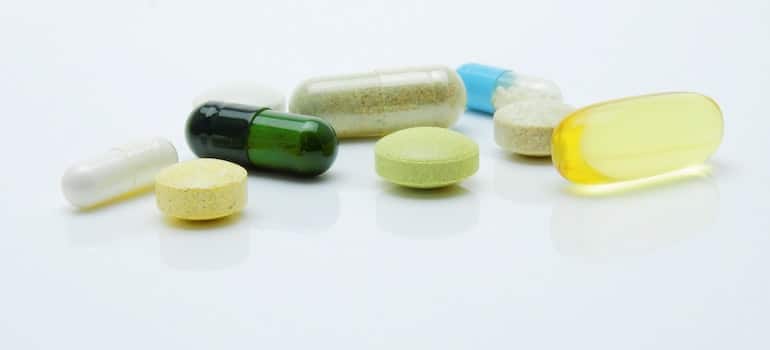
Alcohol use medications
Acamprosate, disulfiram, and naltrexone are the most common drugs in use in medication assisted treatment West Virginia for alcohol abuse. They are not interchangeable – each one will produce different effects on the body and is, therefore, suitable at different stages of alcohol rehab WV. At Harmony Ridge, we use naltrexone; it is a medication with a broad application and comparatively low risk of side effects. We prescribe naltrexone after detox is complete to block the intoxicating effects of alcohol and suppress cravings. Naltrexone is not addictive and does not cause withdrawal. However, it does have some side effects, including headaches, nausea, fatigue, muscle pain, and sleep problems.
Drug dependency medications
The medications most commonly used to treat drug addiction are buprenorphine, methadone, and naltrexone. Of the three, methadone is the only one that has a high risk of causing addiction. For this reason, it can only be dispensed by select clinics. Harmony Ridge does not rely on methadone; instead, we use buprenorphine and naltrexone in our:
Medication assisted treatment in West Virginia can also be beneficial in the cases of other addictions. Depending on your condition, you may also receive buprenorphine or naltrexone in our:
- meth rehab center West Virginia,
- cocaine addiction rehab,
- Ambien rehab,
- barbiturates rehab,
- benzo rehab,
- marijuana rehab center, and
- stimulants addiction rehab center.
Naltrexone is used in the same way for both alcohol and drug addiction. Buprenorphine, on the other hand, you will receive in the early stages of withdrawal to diminish the symptoms of withdrawal, the risk of relapse, and the potential for deadly overdose. Possible side effects include fever, constipation, sleep issues, nausea, irritability, body aches, tremors, and heart palpitations.
Drug overdose prevention medication
If you or someone you know overdoses on opioids, it is vital to administer an opioid antagonist immediately. This will reverse the effects of the drug. You can use naloxone (generic name) or Narcan (brand name) – it is available over-the-counter in some form in all 50 states. Some addiction prevention and treatment organizations may also distribute naloxone for free. Keep in mind, however, that naloxone has very short-term effects. You will want to seek medication assisted treatment in West Virginia after the overdose to treat the addiction itself.

In addition to naloxone, methadone and naltrexone mitigate cravings and increase tolerance to the effects of opioids; therefore, they can also reduce the risk of overdose in the long run. It is important, however, to be aware of this higher tolerance to drugs after MAT. If you do relapse, using the same amount as you did prior to treatment may lead to an overdose. This is one of the risks of MAT that you should discuss during your evaluation at the beginning of rehab.
How Long Does Medication Assisted Treatment Last?
All addiction treatment, including MAT West Virginia, is highly individual. What substance you use, how long you use it for, whether you’ve gone through rehab before, other disorders you may suffer from, and how you respond to different medications and therapy all factor into how effective rehab is for you. Consequently, MAT can last anywhere between a few days and a lifetime. During this time, you might use the same medication constantly or you may switch between medications and dosages.
What Comes After Medication Assisted Treatment West Virginia?
Medication is only one aspect of our holistic approach to addiction treatment. While it certainly can help you on your way to sobriety, it only treats the physical aspects of your addiction. The underlying causes and triggers that may drive you to substance will still be there after MAT West Virginia. This is why it is important not to treat medication as the be-all, end-all of rehab. Instead, you’ll want to also join a more long-term program. At Harmony Ridge, this may take the form of:
- inpatient drug rehab in WV where you stay at our facilities under 24/7 medical supervision
- partial hospitalization program West Virginia where you receive up to 30 hours of care a week while still living at home
- intensive outpatient program West Virginia where you attend three-hour meetings three times a week as you transition into a life without substances
Therapy during rehab
Regardless of how long you spend in MAT West Virginia, it will not be a replacement for addiction therapy WV. This is because therapy addresses a completely different aspect of addiction: it teaches you to recognize your triggers and to cope with them in constructive ways. By using medication to deal with the physical symptoms of addiction and therapy to deal with the mental and emotional sides of it, you can achieve long-term sobriety and avoid relapses.

Addiction aftercare
For most people, addiction is a long-term or even lifelong struggle. So it is important to prepare yourself for life after treatment. At Harmony Ridge, we have addiction aftercare programs where you will work with your case manager and therapist to develop a plan for your transition into a sober life. This plan may include placement in our facilities, participation in therapy, following a 12-step program, and more. The goal is for you to continue to receive the support you need even after you’ve completed your rehab.
Studies and Statistics Regarding Medication Assisted Treatment West Virginia
There is a lot of misinformation surrounding the use of medication in addiction treatment. If you are considering MAT West Virginia, make sure you are using reliable sources to inform yourself. Many studies have been done into the effectiveness and safety of medication assisted treatment.
The benefits and effectiveness of MAT
Opponents of MAT often say that it simply replaces addiction to one type of opioid with addiction to a different type of opioid. There is, however, a difference. Namely, the opioids used in MAT are safe whereas the opioids whose effects they treat are potentially deadly. Furthermore, most MAT medications are not actually addictive so even if you do have to use MAT medication for a long time, you won’t develop an addiction.
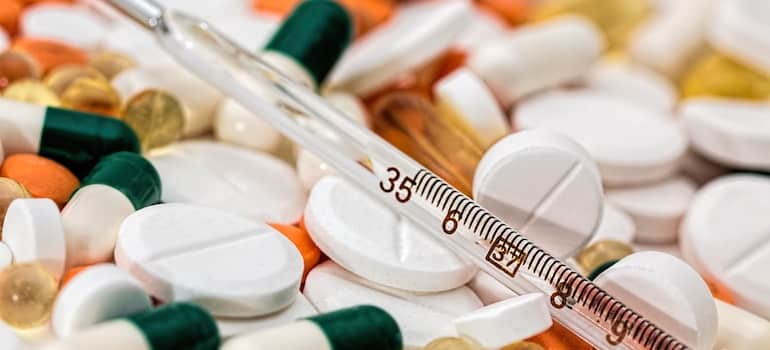
Medication assisted treatment is, therefore, not a new addiction but rather a clinically proven way to effectively treat addiction. Studies have found that MAT reduced the occurrence of relapses and overdoses by a statistically significant amount. Some of the reported benefits include:
- improving the long-term odds of survival
- improving the odds of survival in cases of relapse and overdose
- increasing retention in treatment
- decreasing the odds of relapse
- making treatment less physically taxing
- decreasing criminal activity among addicts
- decreasing the odds of bloodborne infections like HIV and hepatitis
- better birth outcomes in pregnant women with SUD
Despite these overall positive results, MAT effectiveness in individuals will vary.
MAT medications and child safety
If you are (or are about to become) a parent, you’ll want to make sure that your medication assisted treatment in West Virginia is also safe for your children. The good news is that under the guidance of medical professionals, the use of MAT medications is safe for pregnant people, children, and teens. Furthermore, parents with substance use disorder who go through MAT are more likely to keep or regain custody of their children.
However, MAT medication can be toxic for children and teens, producing serious side effects and even causing an overdose when used improperly. If you keep MAT medication in your home, make sure you keep it out of reach of your children; if you are a parent of a child or a teen with a substance use disorder, supervise their medication intake. This is especially important for users of methadone. Not only is methadone a potent and addictive drug, but the addition of coloring to injectible methadone can make it look appealing to young children.
Does Insurance Cover MAT in West Virginia?
Medication assisted treatment in West Virginia is a form of addiction treatment. Addiction treatment, like all treatment for mental illnesses, is itself a form of healthcare. Any health insurance that covers mental illness must, therefore, also cover addiction treatment (including MAT). The extent of the coverage will, however, vary from policy to policy.

At Harmony Ridge, you can pay for your medication assisted treatment with most major insurance plans. Among others, we accept Blue Cross Blue Shield, Humana, Tricare, Aetna, and more. We are also one of the few rehab centers that accept Medicaid. You can also pay in part or in full out of your own pocket.
How Harmony Ridge Can Help?
If you think medication assisted treatment in West Virginia may be the right choice for you, then contact us today. Our staff is available 24/7 to help you find the right treatment for your addiction. With both inpatient and outpatient programs on offer, Harmony Ridge Recovery Center is the perfect place to start your journey toward sobriety.
Contact Us TodayFAQ
1. What is medication assisted treatment (MAT)?
Medication assisted treatment or MAT refers to the use of approved medications to alleviate the symptoms of drug and alcohol withdrawal during rehab. It is commonly a treatment for addiction to opioids, but has also be effective in treating other substance use.
2. How does medication assisted treatment work?
Medication assisted treatment diminishes the most serious symptoms of withdrawal. This makes it easier for a person to resist the physical urge to use opioids in the early stages of rehab.
3. When is MAT beneficial?
Medications are typically prescribed in the cases of serious opioid addiction when withdrawal may be dangerous as well as unpleasant. You may need to test out different medications and dosages to find the right treatment.
4. Is MAT dangerous?
Like all drugs, MAT medications have side effects (similar to the side effects of opioids). When administered by a professional, medication assisted treatment carries an overall low risk.
5. Can I become addicted to MAT medications?
Most medications used in MAT are do not produce the same euphoric effects as the substances they treat; therefore, they are not addictive. The only major exception is methadone.
6. Will MAT make me sober?
Medication assisted treatment primarily targets physical symptoms of withdrawal. It will help you achieve and maintain sobriety, but it is not a replacement for rehab and therapy. The mental and emotional aspects of addiction will still be present during and after MAT. For this reason, MAT is usually only the first step in your recovery. A holistic approach that includes addiction therapy and treatment for potential co-occurring disorders is necessary for long-term success.
Jump To Section
Begin Your Journey to Healing Here
Ask me about recovery, I can help you!
Our recovery specialists are standing by 24/7 to help you or your loved one.
Or call us: 


